44 coupon vs zero coupon bonds
What is the difference between a zero-coupon bond and a regular ... - Quora Simple, zero coupon bonds are sold at significantly lower prices or at deep discounts- say a bond with a face value of $1000 will sell for lower than its face value say $750. So at maturity while the investor would not receive any interest, he will receive the full face value of the bond. Profit=$1000-$750=$250 (Numbers are meant purely Zero-Coupon Bonds : What is Zero Coupon Bond? - Groww Zero-Coupon Bond. In earlier days, companies used to raise funds from investors based on a written guarantee. This written guarantee is known as a bond. Coupon bonds provide coupons or interests at regular intervals. Zero-Coupon Bonds, as the name suggests, do not provide any coupon or interest during the tenure but repay the face value at the ...
Numeraire: Money market vs zero coupon bond | QuantNet Community Q2: Normalized zero-coupon bond pays $1 at its maturity. Let P (t,T) denote the price of a ZC bond at time t that matures at time T. By a basic no-arbitrage argument, P (t,T) is related to the money market account via P (t, T) = E_t^Q [1/M (t,T)]. Q3: It is not that a fixed income instrument satisfies this SDE, it is simply that you could take ...
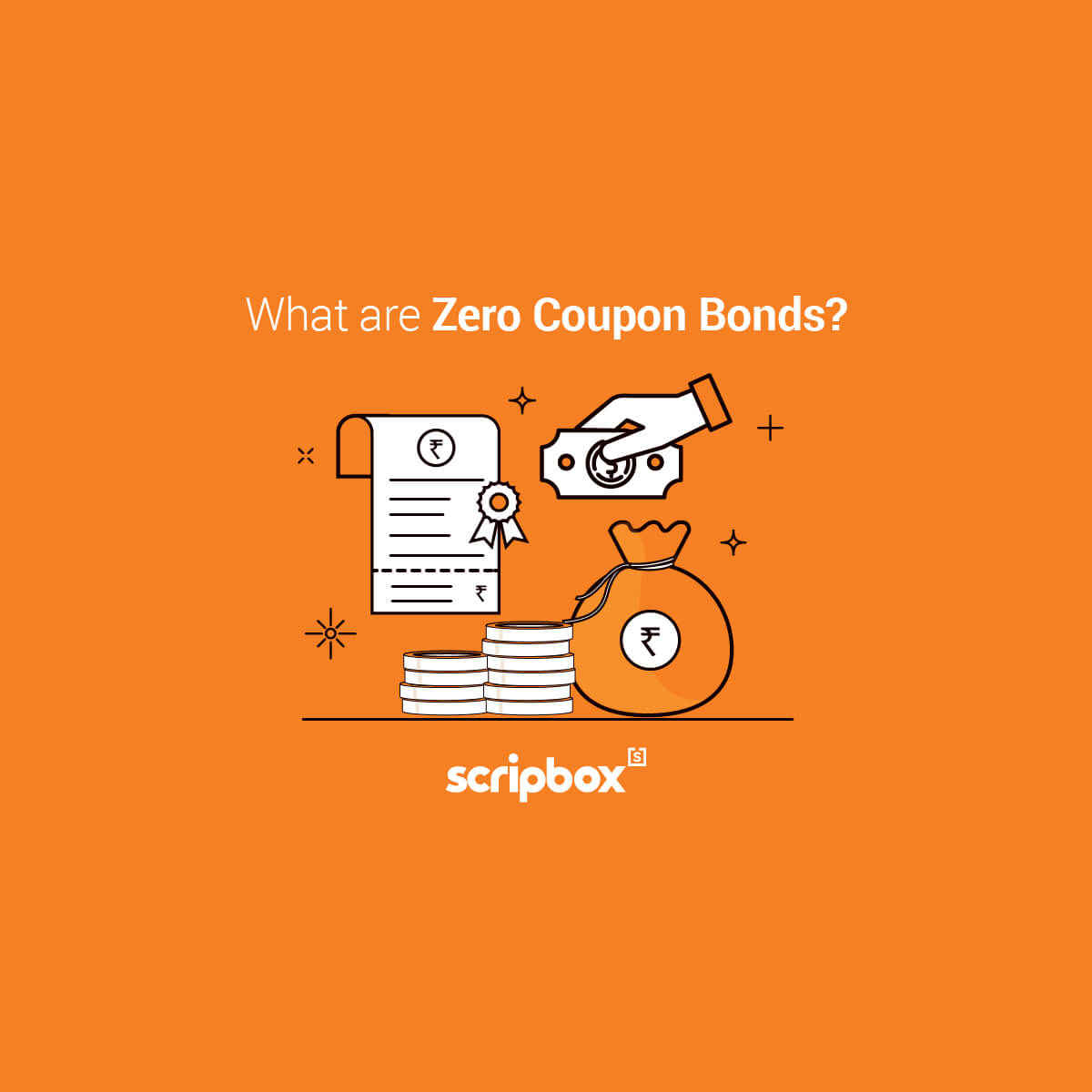
Coupon vs zero coupon bonds
How to Buy Zero Coupon Bonds | Finance - Zacks Zero coupon bonds are a low-risk way to diversity your portfolio. Zero coupon bonds, also known as zeros, are distinct in that they do not make annual interest payments. The bonds are sold at a... What's the difference between a zero-coupon bond and a Treasury ... - Quora But if you want to compare directly just a specific bullet bond with a single zero coupon, there will be less P/L swings as the coupon bond will have less duration and less convexity. Meaning less P/L volatility. In fact the bigger the change in rat Continue Reading Quora User Upvoted by James Feigenbaum What is a Zero Coupon Bond? Who Should Invest? | Scripbox Zero coupon bonds are fixed income securities that don't pay any interest. At the time of maturity, the investor is paid the face value or par value. These bonds come with 10-15 years maturity. Hence, they trade at a deep discount. The bond pricing varies with time to maturity . The higher the time until maturity, lower will be the price the ...
Coupon vs zero coupon bonds. Zero-Coupon Bond - Definition, How It Works, Formula As a zero-coupon bond does not pay periodic coupons, the bond trades at a discount to its face value. To understand why, consider the time value of money. The time value of money is a concept that illustrates that money is worth more now than an identical sum in the future - an investor would prefer to receive $100 today than $100 in one year. Zero-coupon bond - Bogleheads Zero-coupon bonds or "zeros" result from the separation of coupons from the body of a security. Consequently, from a single coupon-paying bond, two bonds result: one which pays the coupons but returns no principal at maturity (an annuity), and one which pays no coupons but returns the par value at maturity (a zero-coupon bond). Zeroes sell ... Difference Between a Zero Coupon CD & a Bond | Finance - Zacks Differences: Interest Repayments and Return on Investment The repayment of interest on a bond will depend on the terms set out in the bond agreement itself, but they're usually paid out... Zero-coupon bond - Wikipedia A zero coupon bond (also discount bond or deep discount bond) is a bond in which the face value is repaid at the time of maturity. Unlike regular bonds, it does not make periodic interest payments or have so-called coupons, hence the term zero-coupon bond.When the bond reaches maturity, its investor receives its par (or face) value. Examples of zero-coupon bonds include US Treasury bills, US ...
Zero coupon bonds: What are they & should you invest? The value of a zero-coupon bond is inversely promotional to the interest rates. It rises in the secondary market with a decline in interest rates. This means higher the duration of the bond, the greater will be its sensitivity to interest rate changes. These are ideally suited for inventors who want a particular lump sum after a certain period ... Primer: Par And Zero Coupon Yield Curves - Bond Economics Par and zero coupon curves are two common ways of specifying a yield curve. Par coupon yields are quite often encountered in economic analysis of bond yields, such as the Fed H.15 yield series. Zero coupon curves are a building block for interest rate pricers, but they are less commonly encountered away from such uses. Zero-Coupon Bonds and Taxes - Investopedia The difference between a regular bond and a zero-coupon bond is the payment of interest, otherwise known as coupons. A regular bond pays interest to bondholders, while a zero-coupon bond does not... Zero-Coupon Bond: Formula and Calculator [Excel Template] In contrast, for zero-coupon bonds, the difference between the face value and the bond's purchase price represents the bondholder's return. Due to the absence of coupon payments, zero-coupon bonds are purchased at steep discounts from their face value, as the next section will explain more in-depth. Zero-Coupon Bond - Bondholder Return
Zero Coupon Bond - (Definition, Formula, Examples, Calculations) Zero-Coupon Bond (Also known as Pure Discount Bond or Accrual Bond) refers to those bonds which are issued at a discount to its par value and makes no periodic interest payment, unlike a normal coupon-bearing bond. In other words, its annual implied interest payment is included in its face value which is paid at the maturity of such bond. Advantages and Risks of Zero Coupon Treasury Bonds - Investopedia Zero-coupon bonds are also appealing for investors who wish to pass wealth on to their heirs but are concerned about income taxes or gift taxes. If a zero-coupon bond is purchased for $1,000 and... 14.3 Accounting for Zero-Coupon Bonds - Financial Accounting A zero-coupon bond is one that is popular because of its ease. The face value of a zero-coupon bond is paid to the investor after a specified period of time but no other cash payment is made. There is no stated cash interest. Money is received when the bond is issued and money is paid at the end of the term but no other payments are ever made. Difference Between a Zero-Coupon CD & a Bond - The Nest Restrictions. One of the main differences between zero-coupon CDs and a bonds is in the way you buy and sell them. Although some financial services firms now offer CDs, traditionally you buy a CD directly from the issuing bank. If you sell the CD back to the bank before it matures, you will owe an interest penalty.
What Is a Zero-Coupon Bond? - The Motley Fool Zero-coupon bonds make money by being sold to investors at substantial discounts to face value. Zero-coupon bonds compensate for not paying any interest over the life of the bond by being available...
Should I Invest in Zero Coupon Bonds? | The Motley Fool So for instance, a 10-year zero coupon bond priced when prevailing yields were 3% would typically get auctioned for roughly $750 per $1,000 in face value. The $250 difference would essentially...
Deep Discount bonds and Zero Coupon Bonds - The Fixed Income A cumulative product provides clarity of coupon paid. The taxation of the returns depends on the tax treatment prescribed at the time, varying from being taxed at maturity or on the accrued interest being taken up for tax in the year it is earned. Another avatar of the deep discount bond is the zero-coupon bond (ZCB).
About Discount Bonds versus Zero Coupon Bonds - Accounting V17 - Confluence Zero Coupon bonds generally have a Maturity Date that is more than a year and a half out from the issue date. Unlike discount bonds, Zero Coupons do take compounding into account, and are generally issued with a semi-annual compounding yield; therefore, they have a Payment Frequency equal to the standard payment frequency of semi-annual.
Zero Coupon Bonds Explained (With Examples) - Fervent The interest rate (aka yield) of zero coupon bonds tends to be higher than the interest rate of say, straight / vanilla bonds. And that's ultimately because for the most part, zero coupon bonds tend to be riskier securities. The higher interest rate / higher yield is meant to compensate for, or pay for, the higher risk.
How Do Zero Coupon Bonds Work? - SmartAsset A zero coupon bond doesn't pay interest, but it could pay off for your portfolio. Choosing between the many different types of bonds may require a plan for your broader investments. A zero coupon bond often requires less money up front than other bonds. Yet zero coupon bonds still carry some of risk and can still be influenced by interest rates.
What Is a Zero-Coupon Bond? Definition, Advantages, Risks A zero-coupon bond doesn't pay periodic interest, but instead sells at a deep discount, paying its full face value at maturity. Zeros-coupon bonds are ideal for long-term, targeted financial needs...
Zero-Coupon Bond - The Investors Book Definition: A zero-coupon bond, as the name suggests, it is a financial instrument which does not allow a regular interest payment to the investor.Moreover, it is a bond which is issued at a meagre market price (discounted price) in comparison to its face value. And it is redeemable on or after a specified maturity date at the par value itself.
Zero Coupon Bond | Investor.gov Zero coupon bonds are bonds that do not pay interest during the life of the bonds. Instead, investors buy zero coupon bonds at a deep discount from their face value, which is the amount the investor will receive when the bond "matures" or comes due.
zero coupon - Are pure PIK bonds' payoffs known from the start ... Forgive my simplistic view of things, but isn't that precisely what Y Zero-coupon bonds with maturity T of market price X/Y do ? Pay X on date 0, receive Y on date T, Y is known from the start. End of story. I hardly care about what Y represents and that it was obtained by simulating reinvested periodic coupons. Assuming that Y is predetermined ...
What is a Zero Coupon Bond? Who Should Invest? | Scripbox Zero coupon bonds are fixed income securities that don't pay any interest. At the time of maturity, the investor is paid the face value or par value. These bonds come with 10-15 years maturity. Hence, they trade at a deep discount. The bond pricing varies with time to maturity . The higher the time until maturity, lower will be the price the ...
What's the difference between a zero-coupon bond and a Treasury ... - Quora But if you want to compare directly just a specific bullet bond with a single zero coupon, there will be less P/L swings as the coupon bond will have less duration and less convexity. Meaning less P/L volatility. In fact the bigger the change in rat Continue Reading Quora User Upvoted by James Feigenbaum
How to Buy Zero Coupon Bonds | Finance - Zacks Zero coupon bonds are a low-risk way to diversity your portfolio. Zero coupon bonds, also known as zeros, are distinct in that they do not make annual interest payments. The bonds are sold at a...


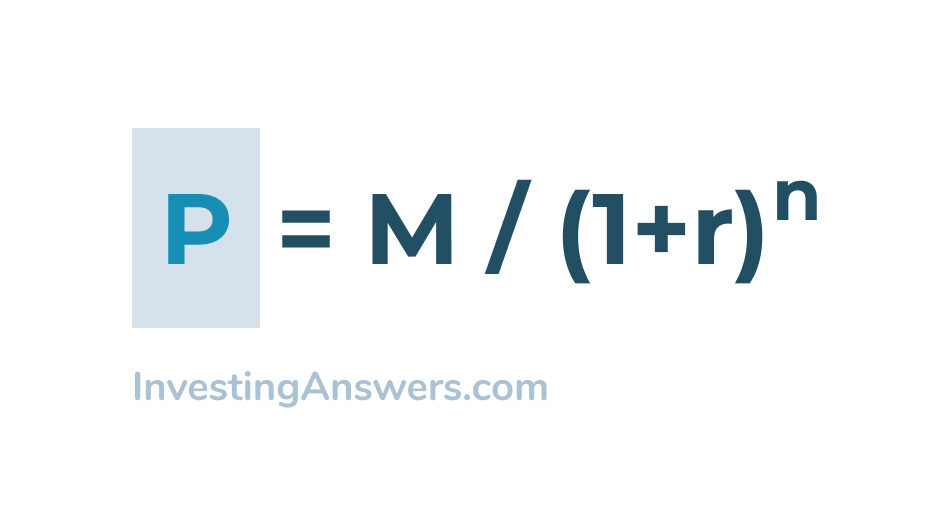


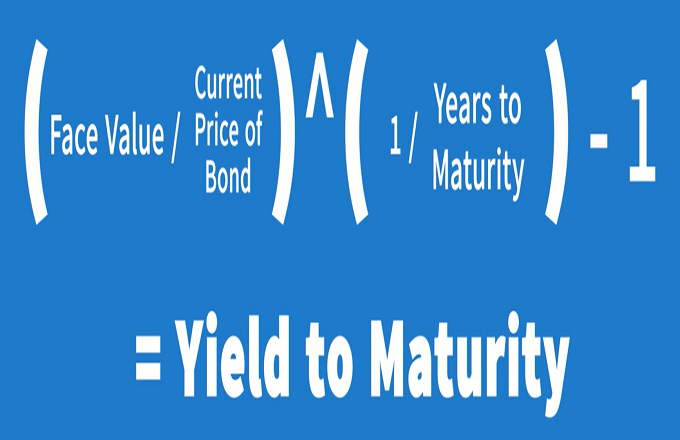

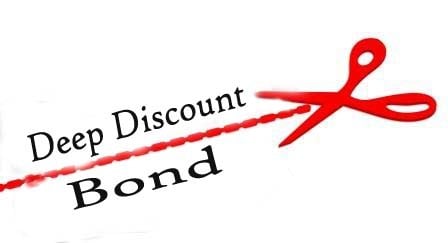


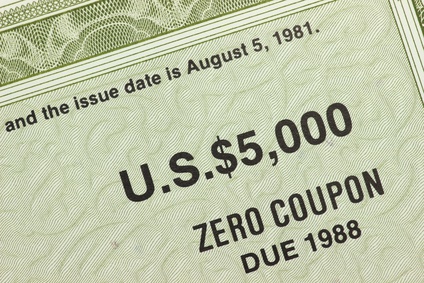
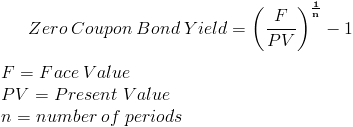
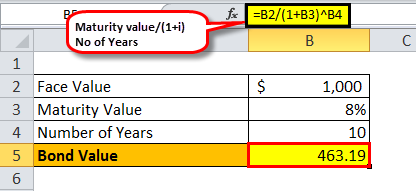







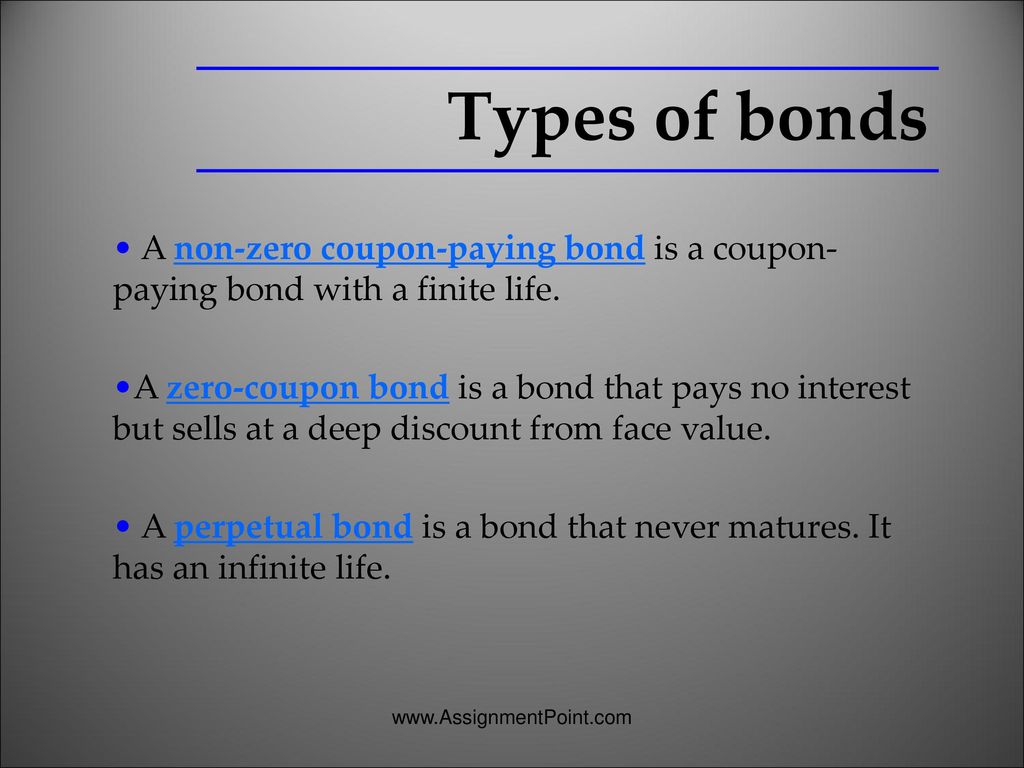

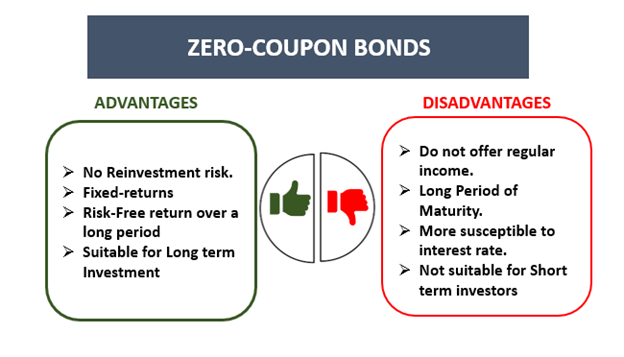



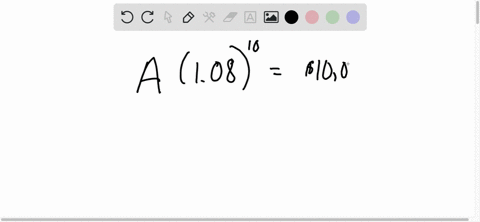
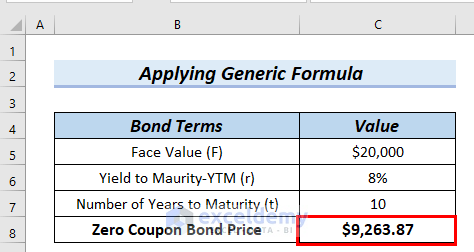


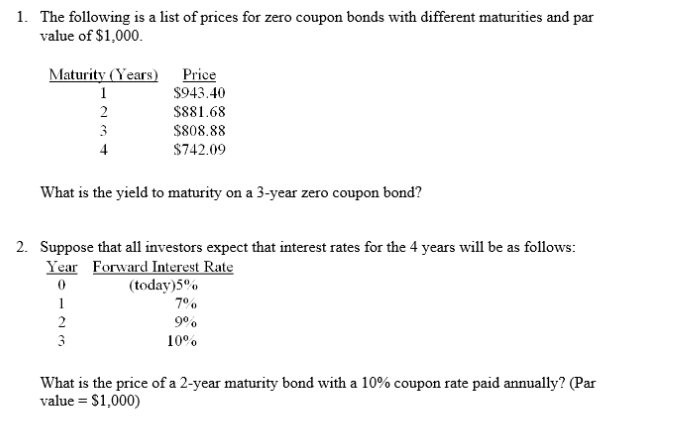







Post a Comment for "44 coupon vs zero coupon bonds"